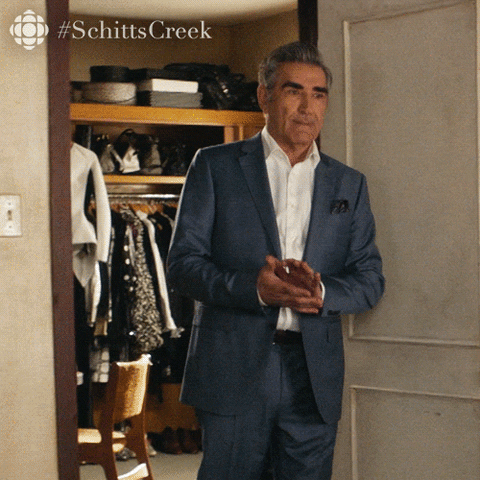How to Talk to Your Kids About Social Media
Let’s chat before you post that.
Whether we love it or loathe it, social media isn’t going anywhere. As much as every parent might dream of shutting down Facebook and TikTok for good, the truth is that social media plays a major role in kids’ lives—even if they aren’t using it themselves. Their friends and classmates are online, and much of today’s social interactions happen in the digital space. Social media influences friendships, shapes self-esteem, and impacts how young people view the world around them. This guide provides practical advice, conversation starters, and strategies to help you navigate these important discussions with care and confidence.
Start Here
Create a Safe Space
Choose a comfortable setting for the conversation—during a walk, over dinner, or at bedtime.
Approach the conversation with curiosity, not judgment, and make your child feel heard.
Begin with Open Dialogue: Start with questions to understand your child’s experience and feelings about social media.
Explain the Reality of Social Media
Peer Pressure and FOMO
Teach your child that social media shows only the highlights of people’s lives, not the whole story.
Talk about how it’s normal to feel left out when everyone seems to be doing something exciting.
Remind them that missing out online doesn’t mean they’re missing out in life.
Keep Personal Information Private
Talk about what’s safe to share online and what’s best kept private (like locations, addresses, or personal schedules).
Explain why protecting privacy helps keep them safe.
Manage Friend Requests Wisely: Allow them to connect only with people they know in real life until they are at least 17 years-old.
Spotting Red Flags
Teach them to recognize suspicious or inappropriate behavior online.
Reinforce that it’s okay to block or report anyone who makes them uncomfortable.
Safe Password Practices
Help them create strong, secure passwords and explain why it’s important to keep them private.
Suggest changing passwords regularly and not sharing them with anyone but trusted adults.
Cyberbullying Awareness
Encourage them to come to you if they or someone else is being bullied online.
Use phrases like "What would you do if you saw someone being bullied online?" to spark discussion.
Encourage Healthy Social Media Habits
Suggest following accounts that make them feel happy or inspired.
Promote regular screen breaks when social media feels overwhelming.
Set Boundaries
Create family guidelines for screen time, like tech-free meals or bedtime.
Encourage them to skip trends or posts that don’t align with their values, even if everyone else joins in.
Promote Positive Use
Social media is what we make of it. Encourage positive uses like sharing and exploring their interests and connecting with friends and family.
Guide Your Child Through Tough Situations
Establish a no-judgment rule, so your child feels safe coming to you if they encounter problems online.
Teach them how to block or report inappropriate content or people.
Model Healthy Social Media Habits
Show your child what balanced social media use looks like by walking your talk.
Make staying off phones during meals a family rule and don’t break it yourself.
Follow-through When They Break the Rules
Take social media infractions seriously to reinforce the importance of safety and responsibility.
Help them understand that mishandling social media can have serious consequences, just like dangerous driving.
Use analogies: "I wouldn’t hand you the car keys if I knew you were speeding at 100 mph. Social media is just as serious—if it’s misused, it can hurt you."
Emphasize that respecting the family’s social media rules is about building trust and protecting their well-being.
Talking Points
Opening the Conversation
Let’s talk about social media and how you feel about it. I want to understand what you enjoy and what’s been challenging for you.
How do you feel after spending time online? Do certain apps make you feel better or worse about yourself?
I’m curious—what’s your favorite thing about using social media?
Who do you follow on social media that makes you feel happy or inspired? If any accounts bring you down, we can unfollow them.
Dealing with Comparisons and FOMO
Do you ever feel like everyone else has more exciting things going on? That’s totally normal.
Remember, what people post online is only a small part of their lives. Even the happiest-looking people have tough moments they don’t show.
It’s okay if you feel left out sometimes when you see friends posting about fun things. Missing out online doesn’t mean you’re missing out in real life.
Social Media Safety
Let’s talk about what’s safe to share online. Some things, like where we live or when we’ll be somewhere, are best kept private.
Keeping your information private isn’t about being secretive—it’s about keeping you safe.
Until you’re a bit older, I’d like you to only connect with people you know in real life. It’s not about control—it’s about trust and safety.
There are people online who might not be who they say they are, so it’s important to be careful about who you talk to.
If someone asks for personal information, like your address or school name, it’s a good idea not to share it and let me know.
Not everyone online has good intentions. That’s why it’s best to only connect with people you know in real life.
If someone you don’t know sends you messages or wants to meet up, let me know right away. We’ll figure out what to do together.
It’s okay to say no or block someone who makes you feel uncomfortable, even if they seem nice at first.
Some people might ask for pictures or personal details. It’s always smart to ask yourself, “Would I tell a stranger this?” If the answer is no, don’t share it online.
If someone tells you to keep a conversation secret, that’s usually a red flag. You can always come to me—no matter what—without fear of getting in trouble.
Be careful about what you post or share. Once it’s online, it’s hard to control who sees it or where it goes.
Sometimes people try to pressure kids into doing things online. If that ever happens, it’s not your fault. Just come talk to me, and we’ll handle it together.
Apps and games with chat features can be fun, but they also mean talking to people you don’t know. It’s always smart to check in with me about new friends you make online.
If anyone asks you to meet them in person, always tell me first. It’s not about me getting mad—it’s about keeping you safe.
Even if someone online says they’re your age, they might not be. That’s why we need to be extra careful about who we trust.
Remember, it’s okay to trust your gut. If something feels weird or off, listen to that feeling and talk to me about it.
Some people might offer gifts or rewards in games to get your attention. It’s important to be cautious and not accept anything from people you don’t know well.
If anyone makes you feel uncomfortable online, you’re not alone. You can always come to me, and we’ll figure out the next step together.
The internet is a big place, and just like in the real world, it’s important to have rules that help keep you safe.
If anyone makes you uncomfortable online, you don’t need to respond. It’s okay to block or report them. You can always tell me, and we’ll handle it together.
Let’s come up with a strong password together—something you can remember but others won’t guess. It’s important to change it from time to time and keep it to yourself.
If you ever see someone being bullied online, I want you to know I’m here to help you figure out what to do. We can talk about ways to support them.
Setting Rules and Boundaries
It’s okay to take a break from social media when it feels overwhelming. How about we set some tech-free times, like during meals or before bedtime?
You don’t have to follow every trend just because others are. It’s okay to say no to things that don’t feel right for you.
Social media can be great if we use it in ways that connect us with people we care about or explore things we love.
If anything happens online that makes you feel upset or worried, please come to me. I won’t get mad—I just want to help.
If someone is bothering you online, it’s okay to block them or report the behavior. I’ll be right here to support you.
Let’s make sure we all practice healthy screen time habits. I’m going to put my phone down during meals too—it’s our time to connect.
If you break the rules we set for social media use, we’ll need to address it. It’s not to punish you—it’s to keep you safe.
Just like I wouldn’t let you drive the car if you were speeding, I need to make sure you’re using social media responsibly. It’s about protecting you.
Respecting the rules isn’t just about following instructions—it’s about building trust and showing that you can handle the responsibility that comes with being online.
Talking Points to Use When They Break a Rule
We need to talk about what happened. I want to understand what led to breaking the rules so we can figure out how to move forward.
These rules aren’t just about following instructions—they’re here to keep you safe and build trust between us.
When you break a social media rule, it’s like running a red light—it might seem small, but it can have serious consequences.
Just like I wouldn’t let you drive the car if you were speeding, I can’t ignore unsafe behavior online. It’s my job to keep you safe.
Mistakes happen, and this is a chance to learn. What do you think could have been done differently?
Social media can be fun, but it comes with responsibilities. We need to talk about how to rebuild trust and show you’re ready for that responsibility again.
If the rules are broken, we have to put some boundaries in place. It’s not about punishment—it’s about safety.
Let’s talk about ways to prevent this from happening again. Do you think more reminders about the rules would help?
If you ever feel pressured to do something online that breaks the rules, come talk to me. I’m here to help, not to judge.
The good news is that mistakes can be fixed. We just need to take this seriously and work together to figure it out.
Breaking the rules doesn’t mean you’re in trouble forever. It means we need to pause, think, and try again with better choices.
You’re learning, and that’s okay. But learning also means facing the consequences so we can move forward in a better way.
We can set new goals for using social media responsibly. I’ll help you if you need support along the way.
Respecting the rules helps show me you’re ready for more freedom online. We’ll get there—it just takes time and trust.
This isn’t just about the rules—it’s about making choices that protect you and keep you safe, online and off.
See also:
A Big List of Red Flags for Kids Online






